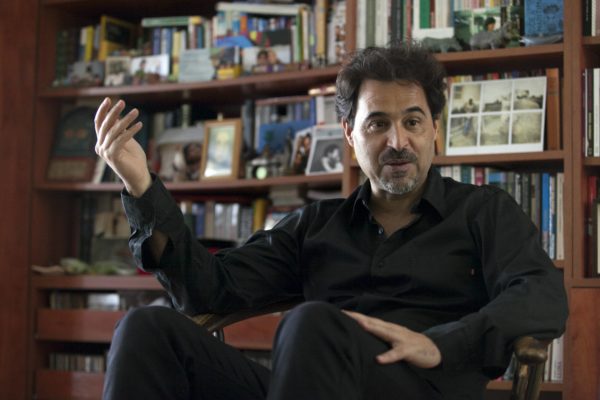
Angola’s Jose Eduardo Agualusa has won the 2017 International Dublin Literary Award for his novel A General Theory of Oblivion, making him the second African to do so and the first writer generally whose work had been translated from Portuguese.
Formerly the IMPAC Dublin Literary Award, the annual prize is in its twenty-second year and, at €100,000, is the richest for a single book of fiction published in English. Sponsored by Dublin City Council, it is managed by Dublin City Libraries, in line with Dublin’s 2010 designation as a UNESCO City of Literature. For each prize, libraries in major cities worldwide make nominations.
Agualusa’s A General Theory of Oblivion, published in 2012 and translated in 2016, had earlier been shortlisted for the 2016 Man Booker International Prize. His twentieth book and ninth novel in a career of 24 books so far, it is his fourth novel to be translated into English, all of them by the British translator Daniel Hahn. Here is a description of the novel on Amazon.

As the country goes through various political upheavals from colony to socialist republic to civil war to peace and capitalism, the world outside seeps into Ludo’s life through snippets on the radio, voices from next door, glimpses of someone peeing on a balcony, or a man fleeing his pursuers.
A General Theory of Oblivion is a perfectly crafted, wild patchwork of a novel, playing on a love of storytelling and fable.
€100,000 is a life-changing sum and Agualusa, according to The Guardian, plans to use it to “fulfil a dream of building a public library” in his adopted home, Mozambique.
“What we really need is a public library, because people don’t have access to books, so if I can do something to help that, it will be great,” Agualusa says. “We have already found a place and I can put my own personal library in there and open it to the people of the island. It’s been a dream for a long time.”
As the book’s translator, Daniel Hahn will take €25,000. But due to his friendship with Agualusa, the latter, in a beautiful act of philanthropy, will further donate €2,000 to the Translators Association First Translation Prize.
The International Dublin Award has quite a history with writers from Africa. Alongside Agualusa on the ten-writer 2017 shortlist were Nigeria’s Chinelo Okparanta for Under the Udala Trees and his close friend Mozambique’s Mia Couto for Confession of the Lioness. They had been chosen from a longlist of 147 books, which included Nigeria’s Chigozie Obioma for The Fishermen and Algeria’s Kamel Daoud for The Meursault Investigation.
The first African winner of the award is Morocco’s Tahar Ben Jelloun in 2004, for his novel This Blinding Absence of Light. In 2005, South Africa’s Diane Awerbuck made the shortlist for her novel Gardening at Night. In 2006, there were two Africans: Nigeria’s Chris Abani for GraceLand and Algeria’s Yasmina Khadra for The Swallows of Kabul. In 2007, J.M. Coetzee, then of South Africa, was chosen for Slow Man. In 2008, Yasmine Khadra made a return with The Attack. In 2012, it was the Sierra Leonean-Scottish Aminatta Forna for The Memory of Love. In 2015, the longlist had Chimamanda Adichie for Americanah, Aminatta Forna for The Hired Man, Zimbabwe’s NoViolet Bulawayo for We Need New Names, and Morocco’s Mahi Binebine for Horses of God, with Adichie and Binebine reaching the shortlist. In 2016, the shortlist had Rwanda’s Scholastique Mukasonga for Our Lady of the Nile.
By being the first book translated from Portuguese to win, A General Theory of Oblivion makes a powerful case for Lusophone literature in a sphere dominated by Anglophone and Francophone writing.
In 2007, Agualusa became the first African to win the Independent Foreign Fiction Prize for his The Book of Chameleons.
Congratulations to Jose Eduardo Agualusa!
Correction: The first version of this post incorrectly stated that Agualusa is the first African to win the International Dublin Literary Award. Agualusa is the second, behind Tahar Ben Jelloun. We apologize for that error.









COMMENTS -
Reader Interactions